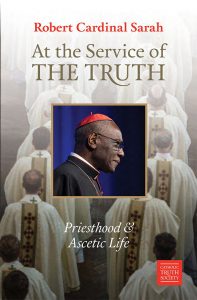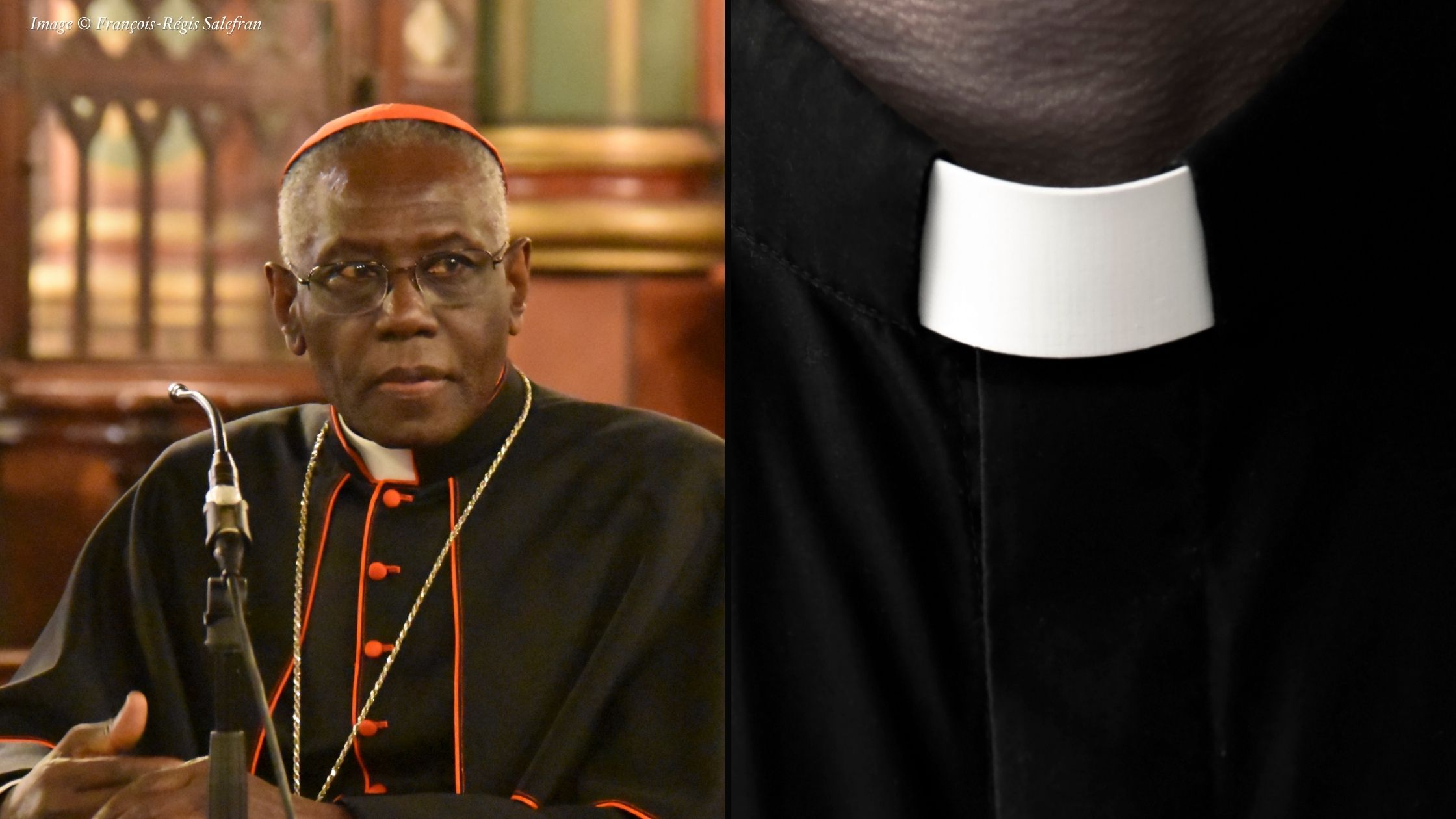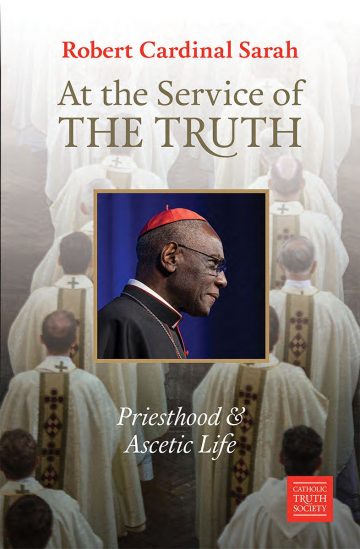Priestly life has never been easy. But perhaps today it is even less so. The temptations and opportunities to fall into sin are truly many; one could say more so than in the past. And we say “more so than in the past” not because all previous eras were better than ours, but because today there are means and habits, at least in the Western world, that facilitate sin, when they do not positively approve of, promote, and recommend it.
Without claiming to make a complete list, let us try to mention some of these elements that today, more than in the past, put the moral integrity of the priest at risk:
1. The education he received. Today’s younger priests have often grown up in families where their parents almost always loved them, but often did not also educate them. In present-day families, for many reasons, there is a great educational void. Children are often left to themselves, when they are not left in bad company, either because both parents work or because, when they come back home, they don’t have it in them or don’t want to sacrifice the last hours of the day to being with their children and educating them. That is why young people today get their education (or rather miseducation) from school (too often a venue for ideology), television and the internet, as well as from their peers, who however are in the same situation. From the educational point of view, parents are absent. One of the main causes of this is that today the importance of sacrifice is not understood. Love is thought to be a feeling. A parent may believe he loves his children simply because he feels love for them. But in many cases, it is not understood that loving children means sacrificing one’s own time and energy in order to be a consistent presence for them, to correct and even punish them if necessary, so that they may grow up well.
Moreover, even in Catholic families there is often not enough religious education, or none at all. The parish or ecclesial association that the children may attend has an important role, but it cannot replace the essential religious education that is received in the family. And we must add that today even the parish or Catholic associations often do not carry out their educational and formative task well.
So this is the first reason. Many of today’s priests did not receive a solid human, affective, and religious education in the family. In particular, they were not raised in the faith from an early age and, above all, they were not educated in the value of renunciation and sacrifice. In large sectors of the younger clergy (let’s say aged fifty and under), it is not unusual to see a reluctance to make sacrifices. This reverberates throughout many aspects of the ministry, but also in the field of resisting temptations and seeking the means to strengthen oneself against them, especially the great means of penance.
2. From this follows a second aspect: organisation, the structuring of one’s days, the rule of life. Several years ago, a bishop confided that he was rather disturbed about the typical daily schedule of a number of his younger priests. What this bishop was saying seemed hard to Some of his young priests (even if they were parish priests or assistant parish priests, with serious responsibilities) got up no earlier than ten or eleven in the morning. Their church, of course, was closed in the morning. Once the bishop found himself passing through a small village in his diocese and, seeing the church closed when it was almost noon, he asked an old woman on the street the reason for this. And the old woman replied, “The priest is sleeping.” And this was not an extraordinary event, but an everyday one. The people of that village knew that in the morning, every morning, the church was closed, that it was not possible to enter to pray, because the priest was sleeping. The bishop then described the rest of the day for such priests: breakfast or lunch around noon; in the early afternoon watching television or posting comments and images on Facebook and other social networks; then phone calls with fellow priests or get-togethers in person. In both cases, the reason for the conversation is simply to gossip about everything and everyone. The bishop said that such priests can spend more than two hours a day posting videos and texts on social media, many of them ridiculous or meaningless, as well as gossiping with fellow priests. Then, around five or six in the evening, the moment finally comes to open the church to celebrate Mass. After Mass has been celebrated and a few other errands run, the evening ends around eight and the long night begins: outings with friends (some priests even go to nightclubs), going to the cinema or watching television and playing on the computer at home…all without a care in the world until two in the morning.
We repeat: listening to this story, at first one is tempted not to believe it. We know many priests, even among the very young, who do not live like this at all. But after consulting other bishops the reality of the story was confirmed. Again, not all priests are like this, on the contrary! By the grace of God there are many priests, both old and young, who are very dedicated to their ministry and who sacrifice themselves for it. The Lord bless them! But it is unfortunately true that other priests idle their time away: the time that is so precious for serving Christ and the Church and that, once wasted, cannot be recovered, since it is impossible to go back. “The years of our life are seventy, eighty for those who are strong, […] they pass quickly and we fly away. […] Teach us to number our days and we will acquire a wise heart”(Ps 90:10, 12).
It is known that the saints did not like to waste time. St Alphonsus Maria de Liguori apparently made a vow never to waste time. We can say that wasting time is truly a sin. It corresponds to the attitude of that man in the parable who, instead of working to multiply the talent he received, went to bury it. That saying is true which says, “idleness is the father of vices”. If so many priests are living in sin, this often depends in part on their totally disorganised and truly mistaken daily schedule. We remember that the great David sinned with Bathsheba because at that time he was relaxed, he was living badly, without a good rule of life. While the troops were fighting, while others were giving their lives for Israel, David slept until late afternoon, and after waking up he sauntered out onto the terrace of his house. There the devil found him and easily prevailed over him because, through that way of life, David had dug the pit under his feet; he had stood alone on the edge of the precipice (2 S 12:1-15). What then are we to think of the behaviour of those idle priests who, while some of their brethren are giving their lives generously for the cause of the Church, spend their days in dissipation? God forbid that we be among them!
3. A third danger is the aforementioned disorderly use of the internet. There may be no need to point out that we have nothing against the internet itself, because if used well it is indeed a great resource, including for the Church. But its misuse is harmful. Various websites, blogs and social media platforms are contributing heavily to the current cultural disaster. And we are not referring only to sites of an evidently sinful or ideological character. In a sense those are less dangerous, because there the sin or error is evident, so anyone who wants to avoid sin will also avoid looking at those pages. The true danger of the internet lies elsewhere, in its potential to destroy our brain. In what sense do we make such a serious statement? We say it in the sense that if we allow the internet to replace reflection, our conscience, and our responsibility to discern in the light of Revelation, then we become like automatons in the hands of others.In and of itself, every learning process requires a form of passivity. There is a teacher or a text that teaches, and there is a pupil who learns. The first movement towards knowledge is primarily passive: allowing reality to enter us so that our intellect can reformulate it in terms of truth. Truth is in fact material reality as comprehended by the mind in an immaterial way. This is the first step in knowledge according to the sound epistemology of philosophical realism: the passive reception of sense impressions and their conceptual elaboration. Then comes the second step. After conceptual understanding, which is obtained through abstraction, the mind can and must perform another operation: judgement. That is, the mind must judge the thing it has comprehended by comparing it with other things. The mind can and must say, “This thing is such and not otherwise, this is true or false”, and so on. Here, in the faculty of judgement, the active component of our intellect is displayed on a higher level of conceptual formulation. Let us take up again the metaphor of nutrition that we used before. In eating there is first of all passivity: we receive within us the food that is given to us by someone who has prepared it. But then the body moves into action to metabolise it (or, if the food is rotten, to reject it).In the age of the internet, we have at our disposal an enormous amount of data and ideas, that is, food for the mind. The point is that the more we read the less we digest. In schools of any level, from elementary to university, instruction always tries to cover both aspects: giving content to students on the one hand, but also getting the students to rework the knowledge received through seminars, written exercises, and preparation for exams. The internet, however, does not require any of this. It gives and, apparently, gives without asking for anything in return. Many today are under the illusion that they know everything, just because they always carry a mobile phone and at any moment can use it to look up information of any kind. But true knowledge is that which is digested, not that which we use and then discard from the mind immediately, as soon as we turn off the computer or phone screen.
Here then is the danger: that the internet may destroy our brain, meaning our critical capacity, the capacity to reason, evaluate, and judge the things we read and see. We thus become puppets in someone else’s hands. We follow sensations instead of right reason. Recently the OECD (Organisation for Economic Co-operation and Development), as part of its programme called PISA (Programme for International Student Assessment), conducted a survey on the study capacity of present-day students. The results are truly worrying. Without dwelling on the many aspects of this research, we note a fact that is truly frightening: a high percentage of present-day adolescents do not have the ability truly to understand what they read. We know very well that Western countries have very high literacy rates: practically everyone can read and write. Everyone can read, but a good percentage of young people are unable to understand what they read. Teenagers are used to reading short texts, for example a tweet or a text message, but if the composition is any longer than that, they lose focus and cannot follow it any more.
In spite of this, the universities continue to churn out graduates. But with the average preparation of these graduates, some of whom fail to understand what they read in their university textbooks, what level will it be at? The concern is great: these are the ranks that in a few years will be producing architects, lawyers, engineers, army officers, diplomats, politicians… what will happen then, considering that already today the social panorama is full of figures that are hardly dazzling in terms of the depth of their specific preparation for their roles?
A priest should live differently. In this age of internet passivity, in this time when people no longer think for themselves, he should avoid the systematic killing of the brain that is perpetrated in this way. Above all, the priest should be a person who thinks, who develops a critical judgement on reality, since he must guide others to recover the reason that today is clouded.
And yet we see that a certain number of priests today, with respect to the internet, behave like everyone else. These ministers of Christ spend a lot of time at the keyboard or with the phone in their hands, posting images and texts that are superficial or ridiculous when they are not downright erroneous in terms of Christian doctrine or scandalous in content. This latter observation leads us to a fourth aspect.
4. The poor theological and doctrinal preparation of many priests also exposes them more easily to sin. It is true that solid preparation is not enough to avoid We have seen that there have also been cases of doctrinally well-rounded priests who were not, however, morally sound. Good doctrine alone, therefore, is not enough to preserve one from sin. But it is true that sound doctrine, combined with other things, is necessary and greatly helps a priest to avoid occasions of sin. We will come back to this at another time. For now, we would just like to emphasise that every priest has the duty to read and study and, if possible, to read and study good books, books that help him. This too is helpful in leading a life in which we shine like the sun, reflecting the rays of Christ.
We have mentioned just four areas of contemporary life in which priests today may find themselves more exposed to sin. There are others of course, but it seemed appropriate to point these out first. We could perhaps summarise what has been said so far with one word: prudence. To avoid sin one must be prudent. Prudence is the virtue of using good means to reach a good end. Our good end is that of being worthy and holy priests of Jesus. Therefore we must constantly ask ourselves: what means must I use in view of this end? Naturally, just as the end is good, so also must the means be, because in our doctrine the use of bad means is not allowed, not even to attain a good end. The end does not justify the means. Let us try to use good means to reach a good end.
 This blog is extracted from our book At the Service of the Truth: Priesthood and the Ascetic Life. Drawn from a retreat given to priests, Cardinal Robert Sarah speaks with his trademark clarity and directness to confront some of the most burning issues facing the priesthood and Christian life in general.
This blog is extracted from our book At the Service of the Truth: Priesthood and the Ascetic Life. Drawn from a retreat given to priests, Cardinal Robert Sarah speaks with his trademark clarity and directness to confront some of the most burning issues facing the priesthood and Christian life in general.
To read Cardinal Sarah’s diagnosis on these issues, and to support the mission of CTS, order your copy of At the Service of the Truth today.


